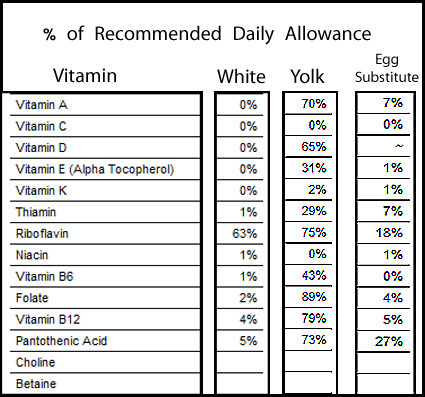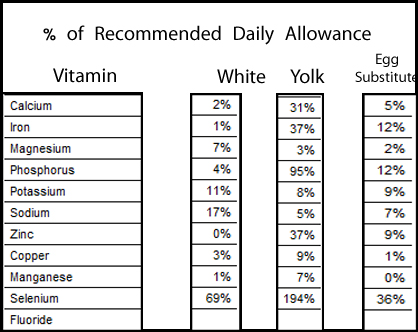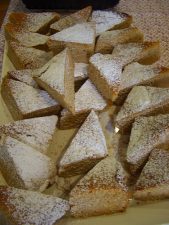 Eating only whites or buying Eggbeaters? Read more on the nutrients and benefits of whole eggs. (Above is Green Prophet’s editor Karin Kloosterman a few years back in her family’s chicken coop.)
Eating only whites or buying Eggbeaters? Read more on the nutrients and benefits of whole eggs. (Above is Green Prophet’s editor Karin Kloosterman a few years back in her family’s chicken coop.)
Eggs have been slandered, persecuted, and vilified for the last 50 years. However, in spite of their bad rap, eggs are a highly nourishing, inexpensive, and easily digested food with dozens of uses in the kitchen. Additionally, they’re an important source of protein for vegetarians. Since most of the nutrients (and flavor) is found in the yolk, the idea of an egg-white omelette has always struck us as absurd. The idea seems even more misguided when you compare the vitamin content of a raw egg white to a raw egg yolk to 100 gm. of egg substitute (100 gm. is more than one serving).

The mineral content paints a similar picture:

The numbers speak for themselves. It’s important to note that most of the nutrients found in egg substitutes are artificially added. Added fortifications may not be as readily absorbed by the body as those that are naturally occurring.
Egg yolks are clearly powerhouses of nutrition. That said, we wanted to discover what conventional wisdom says about their consumption.
Well, eggs aren’t vilified to the extent they were ten or twenty years ago, yet much of the advice is along these lines: “Chicken eggs are high in cholesterol, and a diet high in cholesterol can contribute to high blood cholesterol levels…. One large egg has about 213 mg of cholesterol — all of which is found in the yolk. Therefore, if you eat an egg on a given day, it’s important to limit other sources of cholesterol for the rest of that day…. If you like eggs but don’t want the extra cholesterol, use only the egg whites. Egg whites contain no cholesterol. You may also use cholesterol-free egg substitutes, which are made with egg whites.” Mayo Clinic Emphasis added.
Whole eggs beat unnatural Eggbeaters
Eggbeaters is an egg substitute popular in the United States. Let’s look at its ingredient list:
Egg Whites, Less than 1%: Natural Flavor, Color (Includes Beta Carotene), Spices, Salt, Onion Powder, Vegetable Gums (Xanthan Gum, Guar Gum), Maltodextrin. Vitamins and Minerals: Calcium Sulfate, Iron (Ferric Phosphate), Vitamin E (Alpha Tocopherol Acetate), Zinc Sulfate, Calcium Pantothenate, Vitamin B12, Vitamin B2 (Riboflavin), Vitamin B1 (Thiamine Mononitrate), Vitamin B6 (Pyridoxine Hydrochloride), Folic Acid, Biotin, Vitamin D3
Replacing a fresh egg, a healthy food valued the world over for thousands of years, with a factory-manufactured egg substitute, comprised of 20 ingredients seems like dietary folly.
The concept that dietary cholesterol raises cholesterol levels in the body, which in turn causes heart disease – the lipid hypothesis – is one that more and more people are calling into question. If eating fat, which everyone did freely until a few decades ago, caused heart disease, then why is heart disease virtually unheard of in traditional cultures where they eat enormous quantities of fat? Traditional Inuit (Eskimos) eat massive amounts of fat – 75% of their diet – and enjoy much better heart health than their Inuit counterparts who have adopted modern diets high in carbohydrates and low in fat.
Are you still shying away from whole eggs?
Some egg recipes to inspire you:
Saudi Arabian Spiced Eggs
Parsley, Dill, and Coriander Herb Omelet
Shakshuka: Tunisian Eggs Poached in Tomato Sauce



